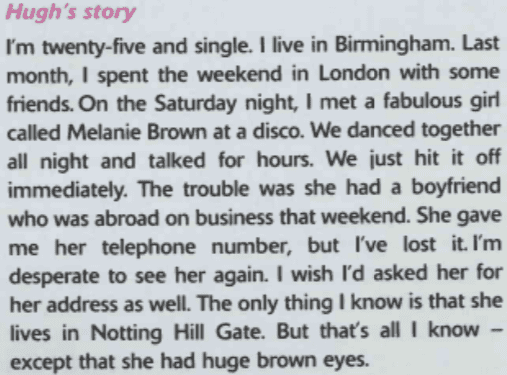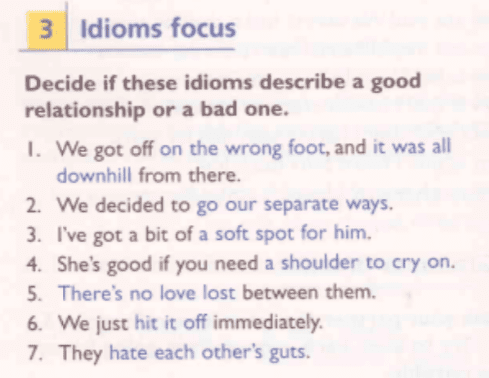Returning to Teaching after a Long Break
I’ve taught English only online for the past seven years or so. Hence, it might sound a bit odd for me to write about my experience returning to teaching after a long break.
Last month, I stepped foot in the classroom for the first time in almost seven years. I taught a group of children for the first time in over 11 years.
I do my utmost to be a frank human being. So, I will admit it now. I did not make an incredible comeback. Nor was I Mr Calm and Collected in the days leading up to my return to classroom teaching. Let’s see what transpired.
The circumstances behind my return to teaching after a long break
Essentially, the (English) owner of a language school in Gdańsk, who we shall call David, contacted me on a portal where English language teachers who predominantly live in Poland advertise their credentials and services.
He didn’t share many details. The essence of his message was “contact me”.
I called him up. Imagine how stunned we both were when it came to light that we are both from the same town in England. After all, there are around 1,000 towns and cities in the UK.
One thing led to another. I was eventually invited to teach two hour-long classes - one to kids (aged between 11 and 13) and one to adults. David told me that each group would consist of no more than four students. He also informed me that one of his senior teachers would be observing the classes.
How did I react to the offer?
Frankly, I’d been itching to get out of my comfort zone and test myself for some time.
Teaching English online has always been kind to me, and will continue to serve me well for many years I am sure, but it has its downsides too.
The lack of face-to-face interaction, even for relatively introverted people like me, can sometimes be frustrating. I get on well with my students, and most of them put in a lot of work to improve their speaking skills. Nevertheless, my MacBook only serves as a mediator in the fostering of somewhat artificial bonds between my students and me.
Of course, I accepted David’s offer to teach the two classes he had lined up for me.
Was there still life in this old dog returning to teaching after a long break?
It was as if I was about to speak in front of 5,000 people
On the day I was due to teach, I was a bundle of nerves.
I used to be cool, calm and collected - even before delivering one-off lectures and talks in front of dozens of people.
On this occasion, I didn’t relish the thought of being observed. Moreover, I was conscious about falling apart due to my rusty classroom skills and worries about the appropriacy of the materials I’d selected.
David informed me that one of the kids in the group could handle advanced-level materials. The other children were, apparently, much weaker.
As for the adults, I had to brace myself for intermediate-level students.
I parked up outside a shopping centre just a ten-minute walk or so from the school. On the way to the school, my nerves began to dissipate and I had a real spring in my step.
There’s still some life in this old dog
When it comes to the first class with new students, I usually try to get across my beliefs as a teacher, the importance of independent language learning and adopting language learning strategies, such as the Word-Phrase Table. However, as I was being observed, it was neither the time nor place for such lectures.
Let me now write separately about how my classes went with both the kids and the adults:
Kids hungry for knowledge
Up first at 18 pm was the kids’ group. Three out of four children turned up.
The chap observing my class sat down in the corner of the rather cramped classroom literally a metre away from my left shoulder. Actually, it was good that I couldn't see him. As the saying goes, 'out of sight, out of mind'.
One of my biggest concerns throughout the day I taught these classes was the content and theme I selected for the kids. I chose a couple of pages from the Upper-Intermediate Innovations Coursebook. This coursebook series has always been one of my personal favourites, as this review of the Innovations Elementary coursebook shows.
The topic of the reading was Long Lost Friends. Essentially, four people share stories of important people in their lives who they’ve lost touch with. The stories contain some useful phrases, idioms and grammatical structures:
Here’s Hugh’s story:

Source: Innovations Upper-Intermediate, p.96
A few hours after planning the class, I was kicking myself for picking the topic of ‘losing touch with others’. In particular, I was convinced that the speaking part of the class would quickly descend into a complete washout. Are 12-year-old kids really old enough to have lost touch with anyone and yearn to be reunited with them?

The kids took to the topic of ‘long lost friends’ like a duck to water
Much to my surprise, these young kids were keen to share stories about people they’ve lost touch with, or deceased relatives they’d have liked to have met. They had a great deal of language in their lockers, from phrasal verbs to collocations, to tell their stories.
Then came exercise 3 - Idioms focus:

Again, these kids were well up on some quite high level language. I was extremely impressed.
All in all, the lesson had a reasonable flow to it with a variety of activities. From reading to speaking, and from Idioms focus to the study of a grammar point (I wish), the level of challenge was just right for these kids.
Returning to teaching after a long break from the classroom, I was clearly a bit rusty. My board work was all over the place. However, as I've already mentioned, there were still some very bright moments throughout the hour-long class.
Don’t you fall apart now
Out with the kids, in with the adults.
Two out of four adults showed up. Both females, and both looking shattered.
The topic of the class was work-life balance. I had planned two separate texts. One text, called ‘Laptop time’, was my own. The other was from the BBC.
I proceeded to hand out the texts to the two ladies and one of them said something along the lines of: “For the first class?”
At that point I realised, dishing out two texts at once was too heavy-handed for a first meeting.
I could easily have sat there and chatted with them for 60 minutes. However, I was being observed.
Anyway, I started reading my text to them, half expecting them to follow. I didn’t give any instructions as to the purpose of my reading aloud and what was to follow after I'd stopped. Nor did I explain what the goals of the lesson actually were.
The main issue was that my online students are so used to my methods that I forgot to ‘reprogramme’ myself to suit the situation. I knew what my intention was, but these ladies didn’t. Hence, the same lady who asked “For the first class”?, asked “What are we doing?”
I also wasn’t helped by the fact that the teachers in this school tend to use downloadable worksheets from Linguahouse for every class. There I was trying to impose some quite linguistically challenging materials and unseen methodology onto two very tired students. I was on a hiding to nothing from the very beginning.
Fortunately, I had some leftover handouts from the previous class with kids. So, ‘Long lost friends’ again then with the adults.
These ladies weren’t as communicative and eager as the kids. However, they began to open up a bit more as the lesson went on.
Apparently, everyone was happy - Back to face-to-face teaching for good then?
David told me that the students were happy with me and my teaching style.
Honestly, I couldn’t believe that the two ladies praised me that much.
Returning to teaching after a long break wasn’t a walk in the park. My rustiness was plain to see.
David was ready to offer me a bunch of hours. However, my return to face-to-face teaching didn’t carry me off my feet as much as I thought it would. When you’re firmly entrenched in a comfort zone, it’s tough to permanently leave it. As a freelance online tutor of English, I get to draw up my own schedule, take days off and freely go on holiday when I want to.
All in all, I feel that there’s life in the old dog yet should I wish to take up classroom teaching once again.



